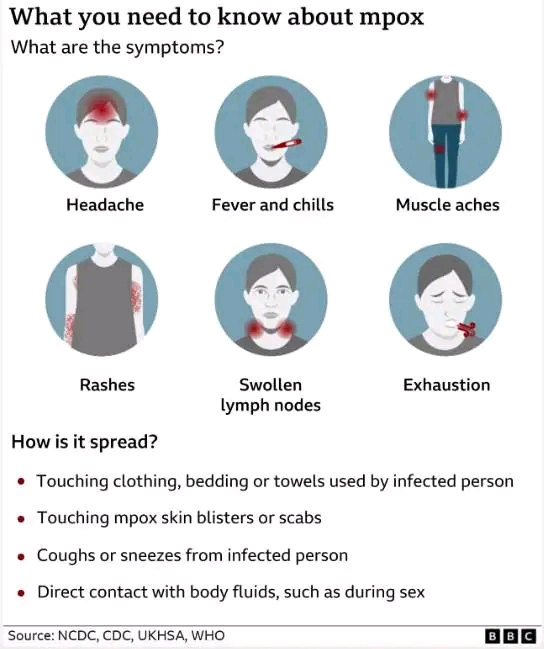The African continent is facing a growing health crisis as the Mpox virus, formerly known as monkeypox, has been declared a public health emergency. The virus has spread rapidly, with the Democratic Republic of Congo bearing the brunt of the outbreak.
Since the beginning of the year, the Democratic Republic of Congo has reported over 13,700 cases and 450 deaths. The virus has also spread to other African countries, including Burundi, the Central African Republic, Kenya, and Rwanda.

Mpox is a highly infectious viral disease that can occur in humans and other animals. It causes symptoms such as fever, swollen lymph nodes, and a rash that forms blisters and crusts over. While the disease is usually mild, cases can be severe, especially in children, pregnant women, or people with weakened immune systems.
The virus can be transmitted through direct contact with infected skin or body fluids, including sexual contact. It can also spread from infected animals through bites or scratches. Mpox is endemic in central and western Africa, where several species of mammals are suspected to act as a natural reservoir of the virus.

The declaration of a public health emergency highlights the urgent need for a coordinated response to the outbreak. Health authorities must work together to enhance surveillance, contact tracing, and vaccination efforts to contain the spread of the virus.
As the situation continues to evolve, it is essential for the public to remain informed and take precautions to prevent the spread of Mpox.






